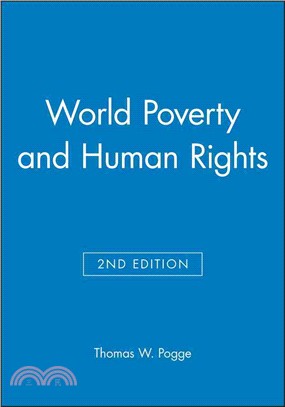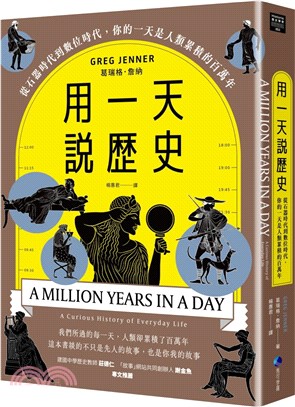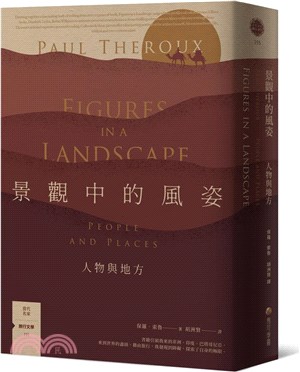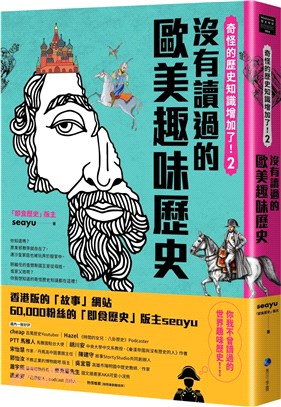World Poverty And Human Rights 2E
商品資訊
ISBN13:9780745641430
出版社:John Wiley & Sons Inc
作者:Pogge
出版日:2008/09/12
裝訂/頁數:精裝/304頁
商品簡介
作者簡介
目次
相關商品
商品簡介
Some 2.5 billion human beings live in severe poverty, deprived of such essentials as adequate nutrition, safe drinking water, basic sanitation, adequate shelter, literacy, and basic health care. One third of all human deaths are from poverty-related causes: 18 million annually, including over 10 million children under five.However huge in human terms, the world poverty problem is tiny economically. Just 1 percent of the national incomes of the high-income countries would suffice to end severe poverty worldwide. Yet, these countries, unwilling to bear an opportunity cost of this magnitude, continue to impose a grievously unjust global institutional order that foreseeably and avoidably perpetuates the catastrophe. Most citizens of affluent countries believe that we are doing nothing wrong. Thomas Pogge seeks to explain how this belief is sustained. He analyses how our moral and economic theorizing and our global economic order have adapted to make us appear disconnected from massive poverty abroad. Dispelling the illusion, he also offers a modest, widely sharable standard of global economic justice and makes detailed, realistic proposals toward fulfilling it. Thoroughly updated, the second edition of this classic book incorporates responses to critics and a new chapter introducing Pogge's current work on pharmaceutical patent reform.
* Thoroughly updated second edition of classic book by Thomas Pogge * Incorporates responses to critics and a new chapter introducing Pogge's current work on pharmaceutical patent reform * Analyses how our moral and economic theorizing and our global economic order have adapted to make us appear disconnected from massive poverty abroad * Offers a modest, widely sharable standard of global economic justice and makes detailed, realistic proposals toward fulfilling it * Essential reading for anyone interested in Human Rights and global inequality and is likely to become core reading on courses
* Thoroughly updated second edition of classic book by Thomas Pogge * Incorporates responses to critics and a new chapter introducing Pogge's current work on pharmaceutical patent reform * Analyses how our moral and economic theorizing and our global economic order have adapted to make us appear disconnected from massive poverty abroad * Offers a modest, widely sharable standard of global economic justice and makes detailed, realistic proposals toward fulfilling it * Essential reading for anyone interested in Human Rights and global inequality and is likely to become core reading on courses
作者簡介
Thomas Pogge is Professor of Philosophy and International Affairs at Yale University, Professorial Fellow in the Centre for Applied Philosophy and Public Ethics at the Australian National University, Research Director in the Centre for the Study of Mind in Nature at the University of Oslo, and Adjunct Professor in the Centre for Professional Ethics at the University of Central Lancashire.
目次
Introduction.I Some Cautions About Our Moral Judgements.II Four Easy Reasons to Ignore World Poverty.III Sophisticated Defenses of our acquiescence in world poverty.IV Does Our New Global Economic Order Really Not Harm the Poor?.V Responsibilities and Reforms.Chapter 1: Human Flourishing and Universal Justice.1. 0 Introduction.1. 1 Social Justice.1. 2 Paternalism.1. 3 Justice in First Approximation.1. 4 Essential Refinements.1. 5 Human Rights.1. 6 Specification of Human Rights and Responsibilities for their Realization.1. 7 Conclusion.Chapter 2: How Should Human Rights be Conceived?.2. 0 Introduction.2. 1 From Natural Law to Rights.2. 2 From Natural Rights to Human Rights.2. 3 Official Disrespect.2. 4 The Libertarian Critique of Social and Economic Rights.2. 5 The Critique of Social and Economic Rights as 'Manifesto Rights'.2. 6 Disputes about Kinds of Human Rights.Chapter 3: Loopholes in Moralities.3. 0 Introduction.3. 1 Types of Incentives.3. 2 Loopholes.3. 3 Social Arrangements.3. 4 Case 1: The Converted Apartment Building.3. 5 Case 2: The Homelands Policy of White South Africa.3. 6 An Objection.3. 7 Strengthening.3. 8 Fictional Histories.3. 9 Puzzles of Equivalence.3. 10 Conclusion.Chapter 4: Moral Universalism and Global Economic Justice.4. 0 Introduction.4. 1 Moral Universalism.4. 2 Our Moral Assessment of National and Global Economic Orders.4. 3 Some Factual Background about the Global Economic Order.4. 3. 1 The Extent of World Poverty.4. 3. 2 The Extent of Global Inequality.4. 3. 3 Trends in World Poverty and Inequality.4. 4 Conceptions of National and Global Economic Justice Contrasted.4. 5 Moral Universalism and David Miller’s Contextualism.4. 6 Contextualist Moral Universalism and John Rawls’s Moral Conception.4. 7 Rationalizing Divergent Moral Conceptions Through a Double Standard.4. 8 Rationalizing Divergent Moral Conceptions Without a Double Standard.4. 9 The Causal Role of Global Institutions in the Persistence of Severe Poverty.4. 10 Conclusion.Chapter 5: The Bounds of Nationalism.5. 0 Introduction.5. 1 Common Nationalism – Priority for the Interests of Compatriots.5. 2 Lofty Nationalism – The Justice-for-Compatriots Priority.5. 3 Explanatory Nationalism – The Deep Significance of National Borders.5. 4 Conclusion.Chapter 6: Achieving Democracy.6. 0 Introduction.6. 1 The Structure of the Problem Faced by Fledgling Democracies.6. 2 Reducing the Expected Rewards of Coups d'Etat.6. 3 Undermining the Borrowing Privilege of Authoritarian Predators.6. 3. 1 The Criterial Problem.6. 3. 2 The Tit-For-Tat Problem.6. 3. 3 The Establishment Problem.6. 3. 4 Synthesis.6. 4 Undermining the Resource Privilege of Authoritarian Predators.6. 5 Conclusion.Chapter 7: Cosmopolitanism and Sovereignty.7. 0 Introduction.7. 1 Institutional Cosmopolitanism Based on Human Rights.7. 2 The Idea of State Sovereignty.7. 3 Some Main Reasons for a Vertical Dispersal of Sovereignty.7. 3. 1 Peace and Security.7. 3. 2 Reducing Oppression.7. 3. 3 Global Economic Justice.7. 3. 4 Ecology/Democracy.7. 4 The Shaping and Reshaping of Political Units.7. 5 Conclusion.Chapter 8: Eradicating Systemic Poverty: Brief for a Global Resources Dividend.8. 0 Introduction.8. 1 Radical Inequality and Our Responsibility.8. 2 Three Grounds of Injustice.8. 2. 1 The Effects of Shared Social Institutions.8. 2. 2 Uncompensated Exclusion from the Use of Natural Resources.8. 2. 3 The Effects of a Common and Violent History.8. 3 A Moderate Proposal.8. 4 The Moral Argument for the Proposed Reform.8. 5 Is the Reform Proposal Realistic?.8. 6 Conclusion.Chapter 9: Pharmaceutical Innovation: Must We Exclude the Poor? .9.0 Introduction.9.1 The TRIPS Agreement and its aftermath.9.2 The argument from beneficial consequences.9.3 Toward a better way of stimulating research and development of essential medicines.9.4 Differential pricing.9.5 The public-good strategy for extending access to essential medicines.9.6 A full-pull plan for the provision of pharmaceuticals.9.7 Specifying and implementing the basic full-pull idea.9.8 Justifying the plan to affluent citizens and their representatives.Last Words.Notes.Bibliography.Index
主題書展
更多
主題書展
更多書展今日66折
您曾經瀏覽過的商品
購物須知
外文書商品之書封,為出版社提供之樣本。實際出貨商品,以出版社所提供之現有版本為主。部份書籍,因出版社供應狀況特殊,匯率將依實際狀況做調整。
無庫存之商品,在您完成訂單程序之後,將以空運的方式為你下單調貨。為了縮短等待的時間,建議您將外文書與其他商品分開下單,以獲得最快的取貨速度,平均調貨時間為1~2個月。
為了保護您的權益,「三民網路書店」提供會員七日商品鑑賞期(收到商品為起始日)。
若要辦理退貨,請在商品鑑賞期內寄回,且商品必須是全新狀態與完整包裝(商品、附件、發票、隨貨贈品等)否則恕不接受退貨。
























